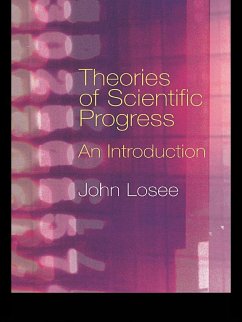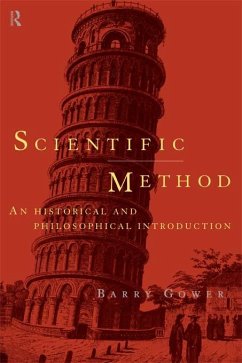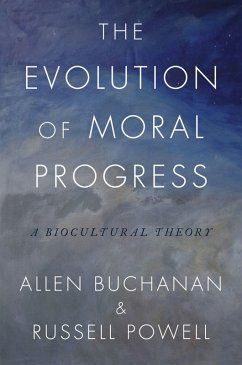
Theories of Scientific Progress (eBook, PDF)
An Introduction
Versandkostenfrei!
Sofort per Download lieferbar
39,95 €
inkl. MwSt.
Weitere Ausgaben:

PAYBACK Punkte
20 °P sammeln!
What is the nature of scientific progress and what makes it possible? When we look back at the scientific theories of the past and compare them to the state of science today, there seems little doubt that we have made progress. But is it a continuous process which gradually incorporates past successes into present theories, or are entrenched theories overthrown by superior competitors in a revolutionary manner? Theories of Scientific Progress is the ideal introduction to this topic. It is clearly organized, with suggestions for further reading that point the way to both primary texts and secon...
What is the nature of scientific progress and what makes it possible? When we look back at the scientific theories of the past and compare them to the state of science today, there seems little doubt that we have made progress. But is it a continuous process which gradually incorporates past successes into present theories, or are entrenched theories overthrown by superior competitors in a revolutionary manner?
Theories of Scientific Progress is the ideal introduction to this topic. It is clearly organized, with suggestions for further reading that point the way to both primary texts and secondary literature. It will be essential reading for students of the history and philosophy of science.
Theories of Scientific Progress is the ideal introduction to this topic. It is clearly organized, with suggestions for further reading that point the way to both primary texts and secondary literature. It will be essential reading for students of the history and philosophy of science.
Dieser Download kann aus rechtlichen Gründen nur mit Rechnungsadresse in A, B, BG, CY, CZ, D, DK, EW, E, FIN, F, GR, HR, H, IRL, I, LT, L, LR, M, NL, PL, P, R, S, SLO, SK ausgeliefert werden.













